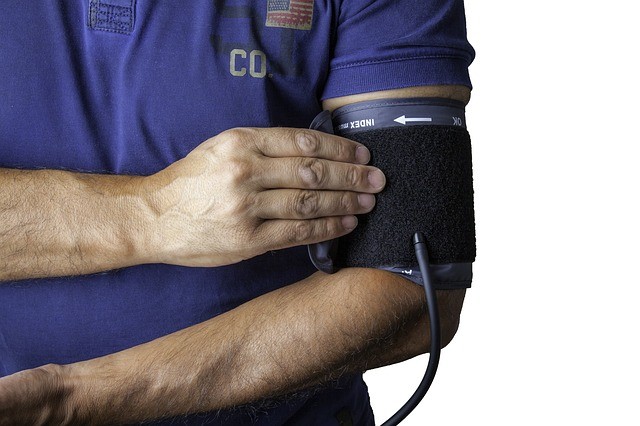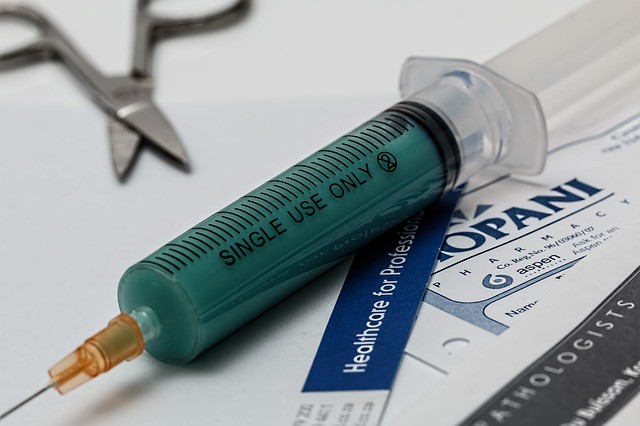Don’t you wish sex were easy?
Whenever you want to make love to your partner, all you have to do is a bit of foreplay, like kissing and petting until your man down there is aroused enough, spend some time on her down south, and have intercourse until you both reach orgasm.
Unfortunately, that’s not how it always goes.
No matter how you want to keep it simple and less complicated, there are many factors to consider, such as stress and medical issues, which affect your man down south.
One of these is erectile dysfunction, or impotence.
According to the National Institutes of Health, approximately five percent of 40-year old men and up to 25 percent of 65-year old men experience erectile dysfunction, or ED.
However, this doesn’t mean men in their 20’s and 30’s are exempted.
ED could happen to anyone, regardless of how old they are.
Are you wondering what ED is?
Here are nine common questions men ask about this penis condition.
1. What Is Erectile Dysfunction?

This is the first question any man will ask about erectile dysfunction.
Also known as ED or impotence, this condition is either the inability to get your penis up for a full erection or the difficulty in maintaining sufficient erections for sexual intercourse.
There are men who are able to get it up, but not hard enough for sex, while there are others whose penises are not cooperating at all.
You will probably feel alone in this predicament, but don’t worry.
You’re not alone.
In fact, millions of men around the world are, or have been, in the same situation as yours.
This leads us to the next question.
2. Is ED Common?

You will experience erection issues at least once at some point in your life.
You’ll get over it as soon as you’ve rested, and most of the time, this is only temporary.
Just like most men, stress, distractions, too much alcohol, and a lack of sleep, among others could lead to erection issues.
Although a conservative estimate, there are 35 million men in the United States who have ED and sought medical help.
However, recurring erection issues happen in men of all ages, although this is most common as you age.
The ED numbers vary, but older men are more at risk for ED than the younger ones.
3. What Are The Causes Of ED?

Generally, ED is a result of narrowing of the arteries, which takes the blood to your penis.
There are various reasons why this happens, which is either physical or psychological.
80 percent of erectile dysfunction cases are due to physical causes, such as cycling, alcohol or drug abuse, side effects of medicines like diuretics and antidepressants, and diseases that affect the nerves, including Parkinson’s disease or strokes.
However, the most common reason for ED is reduced blood flow.
When the arteries become narrowed, blood flow to the area down south is reduced, which leads to difficulty in getting or maintaining erections.
Smoking, poor diet, lack of exercise, and obesity could be the reasons why blood flow to your penis decreased.
Aside from the physical issues, psychological factors could also be the reason why you are having erection issues.
Stress, depression, and anxiety are major causes of impotence.
If you are having problems in the relationship, then your erection and sex life will most likely suffer as well.
4. Is ED A Sign Of Infertility?

The answer is no.
Most men think that the inability to get it up means they can no longer father a child.
That’s not how it goes.
Impotence and infertility are two different concepts.
Difficulty in getting it up is not an indicator of male fertility.
You can get an erection that is good enough for sexual intercourse, but there is a possibility that you can’t get your ladylove pregnant.
On the other hand, you might have difficulty getting or maintaining an erection, but you are still able to father a child.
Don’t confuse these two concepts.
5. Aside From Inability To Get It Up, How Will I Know I Have ED?

Before the doctor recommends a specific treatment option, he will also thoroughly look into your medical history to see if there are conditions that lead to ED.
Your doctor will also check your blood pressure and conduct a physical examination on your initial visit to check physical abnormalities.
Depending on the situation, he will require you to get a blood test.
This is to check cholesterol levels and other fats in your blood, and to rule out liver or kidney disease.
This could check your hormones, too.
A urine test is also another possibility, as well as ECG if your doctor suspects coronary disease.
Keep in mind that ED could be an initial sign that something might be going on inside your body.
This is why it is important to go through these tests to determine the cause of erectile dysfunction.
6. What Interferes With Blood Flow?

You know how important blood flow is in erection.
When there is not enough blood flow down there, then your penis might not cooperate in times you need it most.
Why are you not getting enough supply down south?
In many cases of impotence, is due to atherosclerosis or hardening of the arteries.
It is attributable to age and genes, although other causes include unhealthy diet, high blood pressure, lack of exercise, and poor lifestyle choices.
Excessive cigarette smoking, obesity and sedentary lifestyle also interfere with blood flow, which leads to erection issues.
When it comes to blood flow, all areas of your penis must have an ample supply.
If the inner areas of your penis are not getting enough blood flow, a condition called penile arterial insufficiency, then erections could be a problem.
You might also experience leakage issues down south.
This means even if there is enough blood flow in the area, your penis is unable to trap the blood needed to maintain an erection.
Any of these conditions require medical attention, because it signifies blood vessel disease or cardiovascular issues.
7. Is ED Treatable?

The answer is it depends on the cause of erectile dysfunction.
There are various treatment options available to get your groove back in bed.
You could start with getting rid of unhealthy lifestyle choices in exchange for good ones.
Get enough sleep, include workouts in your daily routine, eat healthy and kick unhealthy habits.
Aside from this, here are other treatment options available for you.
Oral Medications

These tablets increase blood flow down there by stimulating cGMP, a chemical responsible for dilating the blood vessels when you are sexually aroused.
Pelvic Floor Exercises

According to some studies, strengthening pelvic floor muscles can help treat erectile dysfunction.
Identify your pelvic floor muscles and do strengthening exercises, such as Kegels.
They are the same ones that stop your urine flow, but do not do them when urinating.
It is not safe to start and stop your urine flow.
Vacuum Devices

This type of product traps the blood at the base of your penis to help maintain an erection.
Although effective in keeping your man up, make sure to use this no longer than 30 minutes.
Penile Injection Therapy

A drug will be injected directly on your penis to stimulate blood vessels to expand.
This will facilitate better blood flow in the area.
Sex Therapy

If your ED is due to psychological issues, then going through sex therapy or counseling could be your best option.
Vascular Reconstructive Surgery

This type of surgery improves blood supply down south by bypassing blocked arteries and replacing it with an artery from your abdominal muscle.
However, not everyone is a good candidate for this type of surgery.
Penile Prosthesis

This involves the insertion of a permanent rod in the penis to keep it rigid whenever the need arises.
More importantly, treating the underlying conditions responsible for ED is the best solution.
If you are experiencing depression, stress, hormonal issues, or blood pressure problems, make sure to address them first.
You will notice a difference in no time.
8. Is There A Way To Prevent ED?

Of course, there are many ways to prevent ED.
Although you can’t get away with genes, there are many ways you could kick ED’s butt and even make it go away.
This includes the following:
Eat Healthy – Eat a healthy diet and avoid junk food.
Exercise regularly and engage in physical activity each day.
No Alcohol – Minimizing or stop your alcohol intake.
No Smoking or Drug – Quitting smoking and drug use, and get help if you can’t.
Maintain Healthy Body – Keep your blood pressure and blood cholesterol levels in check.
Weight Right – Maintain a healthy weight.
Get Rested – Get plenty of sleep and rest.
Get Help – Ask for help if you experience depression or anxiety.
In other words, you need a healthy heart to minimize your risk of erectile dysfunction.
By reducing your risk factors for heart disease, you will be able to save your man down there as well.
9. Can Insurance Cover For The Costs Of ED Treatment?

This will depend on the type of treatment your doctor recommends.
If erectile dysfunction is due to a medical condition, such as diabetes, high blood pressure, depression, penile injury, or diseases affecting penile nerves, then your insurance could cover for the cost of the treatment.
Aside from this, insurance companies do not cover ED treatment.
FDA has not yet released any medications or sex therapies that your insurance policy could cover.
However, insurance companies all differ, so ask your insurance provider to check if the ED treatment your doctor recommends for you is covered.
ED may be an embarrassing situation for most men, but it is also all too common.
You are not alone, so if you have more than the occasional problem with ED, be sure to speak to your physician about it.
The first step is to figure out the reason it is happening to you.
Once you know, you can start a specific treatment plan to address it.
You don’t have to live with ED.
